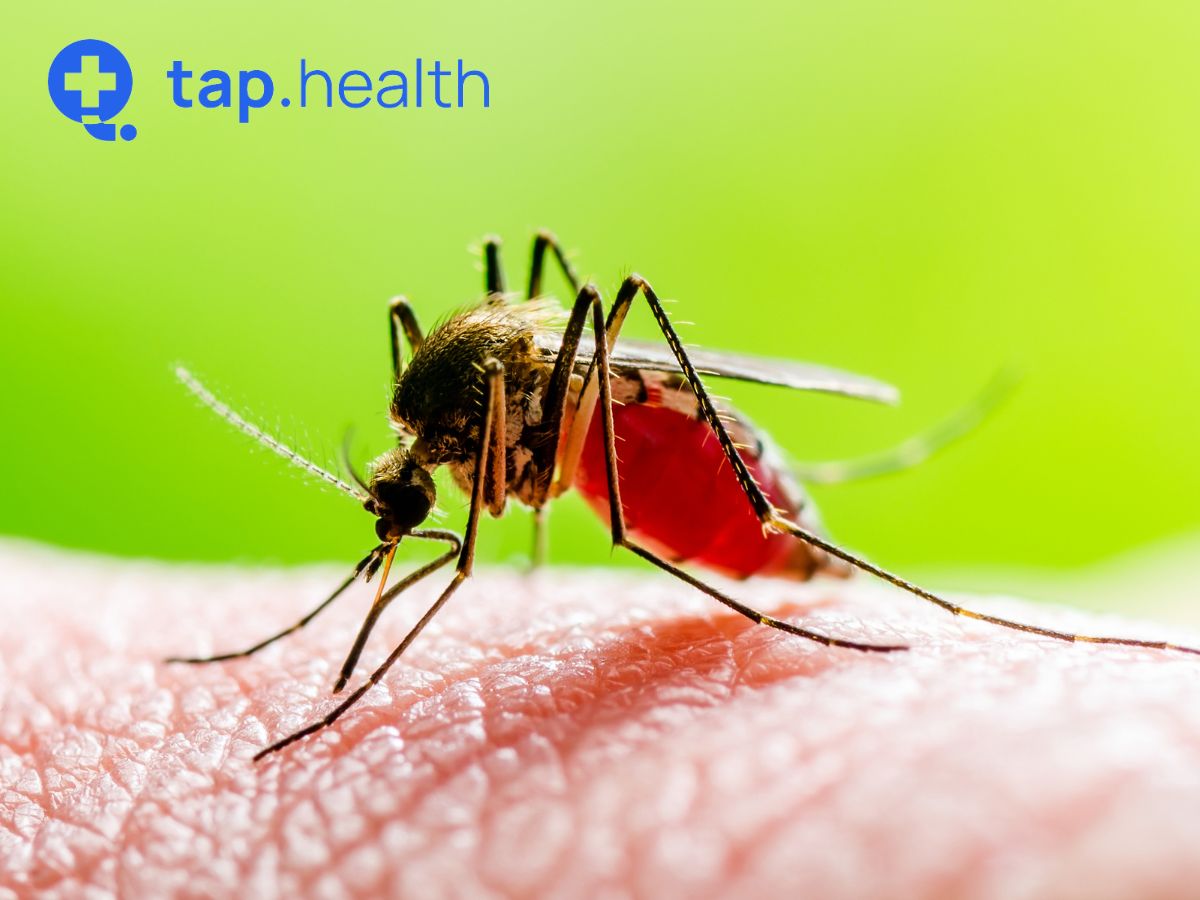Dengue fever is a viral illness transmitted by the Aedes mosquito. It is a common health concern in tropical and subtropical regions, affecting millions of people every year. While there is no specific treatment for dengue, there are several natural home remedies that can help alleviate symptoms and promote recovery. In this article, we will explore ten effective remedies that can be easily prepared and used at home.
What Causes Dengue?
Dengue is caused by the dengue virus, which belongs to the Flaviviridae family. Mosquitoes infected with the virus transmit it to humans through their bites. The mosquitoes are responsible for dengue transmission are primarily found in urban areas and breed in stagnant water sources such as flowerpots, discarded tires, and water containers.
Once the virus enters the human body, it multiplies in the blood and targets various organs, including the liver, spleen, and lymph nodes. This results in flu-like symptoms, such as high fever, severe headache, joint and muscle pain, rash, and fatigue.
One of the key factors contributing to the spread of dengue is urbanization. Rapid urban growth often leads to inadequate water supply and sanitation systems, creating breeding grounds for mosquitoes. Additionally, climate change plays a role in the expansion of dengue transmission zones, as warmer temperatures allow mosquitoes to thrive in more regions.
Preventing dengue involves controlling mosquito populations through measures such as eliminating standing water, using insect repellent, and wearing protective clothing. Public health campaigns also play a crucial role in educating communities about the risks of dengue and promoting preventive actions.
What are the Signs and Symptoms of Dengue?
The signs and symptoms of dengue can vary from mild to severe. In most cases, individuals infected with the virus experience a sudden onset of high fever, which may be accompanied by severe headache and pain behind the eyes. Other common symptoms include muscle and joint pain, rash, nausea, vomiting, and swollen lymph nodes.
In some cases, dengue fever can progress to a severe form known as dengue hemorrhagic fever (DHF) or dengue shock syndrome (DSS). These complications can lead to bleeding, organ damage, and even death. It is crucial to seek medical attention if you experience severe symptoms, such as persistent vomiting, severe abdominal pain, bleeding gums, difficulty breathing, or restlessness.
Furthermore, dengue is transmitted by the bite of an infected Aedes mosquito, primarily Aedes aegypti. These mosquitoes are most active during the day, especially in the early morning and late afternoon. Prevention of dengue involves controlling mosquito populations by eliminating standing water where mosquitoes breed, using insect repellent, wearing long-sleeved clothing, and using mosquito nets.
It is important to note that dengue is endemic in over 100 countries, particularly in tropical and subtropical regions. Travelers to these areas should take precautions to prevent mosquito bites and be aware of the symptoms of dengue in case they become infected. Early detection and management of dengue are essential to prevent complications and reduce the risk of severe illness.
10 Home Remedies for Dengue Fever
Dealing with dengue fever can be a challenging experience, but several natural remedies can help alleviate symptoms and promote a speedy recovery. In addition to the well-known remedies like papaya leaf juice and fenugreek seeds, here are a few more options to consider:
1. Papaya Leaf Juice
Papaya leaf extract is known for its ability to increase platelet count, which is often reduced in dengue patients. Consuming fresh papaya leaf juice can help accelerate recovery.
2. Giloy
Giloy, also known as Tinospora cordifolia, is an herb with immunomodulatory properties. It helps boost the immune system and reduce the severity of symptoms.
3. Neem Leaves
Neem leaves contain antiviral and antibacterial compounds. Chewing neem leaves or drinking neem tea can help fight off the dengue virus and alleviate symptoms.
4. Tulsi (Holy Basil)
Tulsi leaves are known for their immune-boosting properties. Consuming tulsi leaves or drinking tulsi tea can support the body’s defense system during dengue fever.
5. Fenugreek Seeds
Fenugreek seeds are rich in antioxidants and have anti-inflammatory properties. Soaking fenugreek seeds overnight and consuming the water in the morning can help reduce fever and alleviate symptoms.
6. Coconut Water
Coconut water is a natural source of electrolytes and helps replenish fluids in the body. It can aid in preventing dehydration, which is common in dengue fever.
7. Ginger
Ginger has anti-inflammatory properties and can help relieve pain and nausea. Drinking ginger tea or chewing on a small piece of ginger can provide relief from dengue symptoms.
8. Barley Water
Barley water is known for its cooling effect on the body. Drinking barley water can reduce fever and promote hydration during dengue fever.
9. Orange Juice
Freshly squeezed orange juice is rich in vitamin C, which helps boost the immune system. It can also aid in increasing platelet count and reducing the severity of symptoms.
10. Essential Oils
Certain essential oils, such as lemongrass, eucalyptus, and lavender, have mosquito-repellent properties. Using them in a diffuser or applying them topically can help prevent mosquito bites.
By incorporating these additional remedies into your dengue fever management plan, you can provide your body with the necessary tools to combat the virus and promote a quicker and more comfortable recovery. Remember, always consult with a healthcare professional for proper diagnosis and guidance.
Dengue fever, also known as “breakbone fever,” is a viral infection transmitted by mosquitoes. It is prevalent in tropical and subtropical regions, affecting millions of people each year. The symptoms of dengue fever can be debilitating, including high fever, severe headache, joint and muscle pain, and rash. In severe cases, it can lead to dengue hemorrhagic fever, which can be life-threatening.
While medical treatment is essential for managing dengue fever, home remedies can play a supportive role in alleviating symptoms and promoting recovery. These natural remedies have been used for generations and have shown promising results in boosting the immune system and reducing the severity of symptoms.
When to Seek Medical Attention?
While home remedies for dengue can provide symptomatic relief, it is crucial to know when to seek medical attention. If your symptoms worsen or persist, consult a healthcare professional immediately. Seek immediate medical care if you experience severe abdominal pain, bleeding, vomiting blood, difficulty breathing, or signs of dengue hemorrhagic fever.
It is also important to monitor your temperature regularly, as a sudden high fever may indicate a more serious condition. Keep track of any changes in your symptoms and report them to your doctor promptly. Additionally, dehydration is a common complication of dengue fever, so make sure to drink plenty of fluids and seek medical help if you are unable to keep fluids down.
Furthermore, dengue can lead to complications such as organ damage and shock if not treated promptly. Pay close attention to warning signs such as persistent vomiting, severe headache, and fatigue, as these may indicate a more severe form of the disease. Early detection and medical intervention are key in managing dengue fever effectively and preventing serious complications.
FAQ on Home Remedies for Dengue Fever
1: Can dengue be cured with home remedies alone?
A: Home remedies can help manage dengue symptoms and enhance recovery, but they do not cure the viral infection. It is necessary to consult a doctor for proper diagnosis and medical treatment.
2: Are there natural ways to prevent dengue?
A: While there are no foolproof methods to prevent dengue, you can reduce the risk by eliminating mosquito breeding sites, using mosquito repellents, wearing protective clothing, and installing mosquito nets or screens in your living space.
3: What other precautions should I take during dengue fever?
A: It is essential to get plenty of rest, avoid strenuous activities, and follow a nutritious diet. Adequate hydration is crucial, so ensure you drink enough fluids throughout the day.




